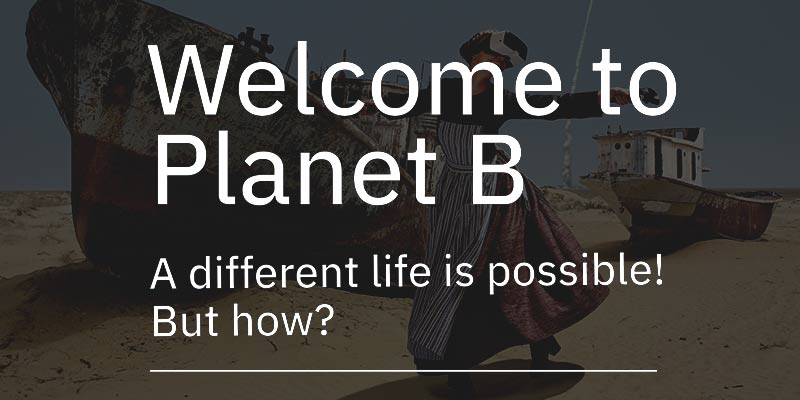Keplers Gardens
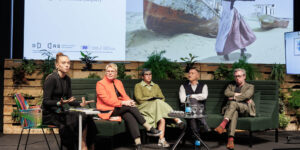
Hatching the Future of Museums
Michael John Gorman (IE), Olga Tykhonova (UA/AT), Merete Sanderhoff (DK), David Vuillaume (CH/DE), Johanna Eiramo (FI), Lauren Vargas (US/NL)
In the shadow of a climate and ecological emergency that affects all areas of social, political and economic life, the purpose and scope of action of museums must (again) be questioned. How can museums reposition themselves in an age of climate change? Can museums inspire action on planetary crises. Can museums inspire action on planetary crises, and can museal institutions be reimagined for a more diverse, intersectional publics?
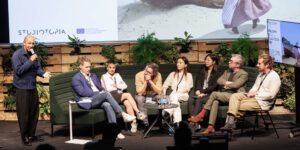
GET.Inspired by Best Practice
Bradly Dunn Klerks (NL/BE), Arisa Kamada (JP), Christoph Pasching (AT), Fara Peluso (IT/DE), Jakob Lambert (AT), Marko Vivoda (SI), Yinan Liu (NZ), Michael John Gorman (IE)
Get.Inspired Talks highlight promising, practical projects in the field of tension between art, technology and science that pursue the central question "But How?" and describe ways out of the planetary crisis.
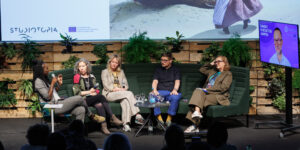
Strategies of Culturing
Alexandra Antwi-Boasiako (DE), Bernd Fesel (DE), Diana Ayton-Shenker (US), Drew Hemment (GB), Tega Brain (AU), Francesca Thyssen-Bornemisza (NL)
In this panel discussion, protagonists specializing in AI research, transdisciplinary and critical art, cultural economy, philanthropy and organizational development come together to debate strategic culturing and the tools for building cultural narratives that inspire and inform change.
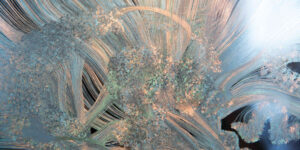
Keynote by Carmody Grey
Carmody Grey (GB)
Carmody Grey is a philosopher, ethicist and theologian working at Durham University UK, she researches and teaches on science, economy and environment.

Residency. But How?
Christian Rauch (DE), Aimee Van Wynsberghe (CA), Irakli Sabekia (GE), Marjan Žitnik (HR), Robertina Šebjanič (SI)
Residency programs offer an opportunity for Artists or Scientists to swap their respective point of view – from working in an atelier to testing their skills in a laboratory context and vice versa – thus encouraging the exchange of ideas and building of new conceptiual models for problem solving.
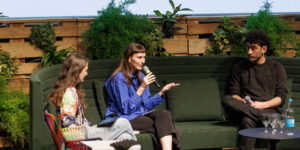
The Stories We Tell Ourselves: Misinformation and Climate Change
Gianni Riotta (IT), Bernd Hezel (DE), Marta Handenawer (ES), Mark Farid (GB)
In order to ‘land’ on planet B, as Bruno Latour would formulate, people need to be aware of the actual mechanisms implied in climate change, in every aspect: economic, social, geological… The story we tell ourselves and narratives we share with like-minded people are key to new perception and action.

Spotlight by Forensic Architecture
Forensic Architecture
What roles does current technology play in the manipulation and misinformation of citizens? In a spotlight talk, Shourideh C. Molvi highlights the threats that possibilities of global communication at a mousclick brings with it.
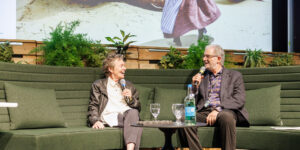
Visionary Pioneers Lecture by Laurie Anderson with Laudatio by Charles Amirkhanian
Laurie Anderson (US), Charles Amirkhanian (US), Gerfried Stocker (AT)
Ars Electronica honors internationally renowned artist Laurie Anderson (US) as the 2022 “Visionary Pioneer of Media Art”.
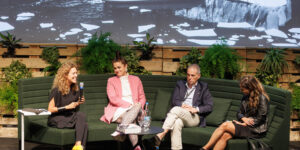
Network Ecologies: Commitment to Change as a Way out of Crisis
Francesca Bria (IT), Giulia Foscari (IT), Eva Franch I Gilabert (ES/CAT/US), Carlo Barbante (IT)
The extreme conditions found in the Southernmost continent of planet Earth are the result of an underlying climatic cycle which is prone to human interference. This panel looks at why Antarctica has been called the ultimate continental laboratory and how the data obtained by research teams will enhances the prediction of future climate scenarios and the development of proper mitigation strategies.
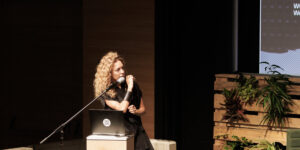
Spotlight by Giulia Foscari
Francesca Bria (IT) , Giulia Foscari (IT)
The architect, researcher, activist and S+T+ARTS Prize winner Giulia Foscari gives insight into her artistic work that moves in the field of tension between art, technology and science: Antarctic Resolution was conceived by Giulia Foscari / UNLESS to catalyse global attention to one of the world’s few Global Commons and create a constituency for the only continent without an indigenous population, with the ambition of contributing to the protection of the Antarctic, and in turn, of the human species.
